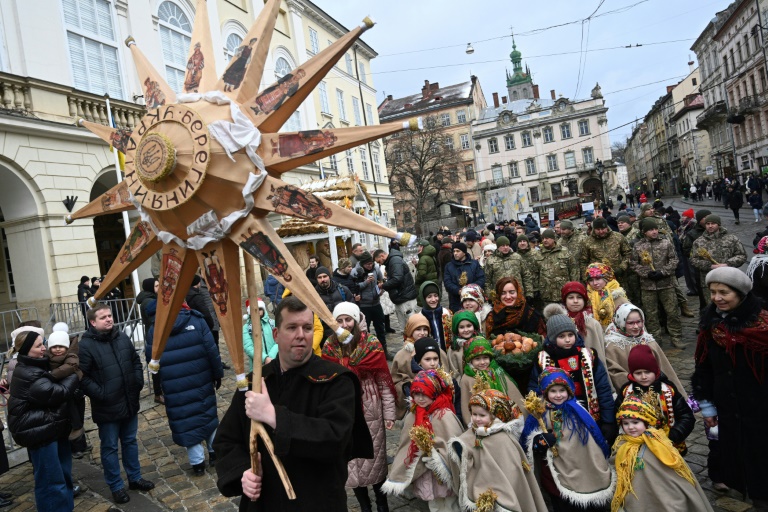Pope Francis has kicked off global Christmas celebrations with a call for peace, as Israel’s war on Hamas and Russia’s invasion of Ukraine cast a shadow over one of the world’s favourite holidays.
Having said earlier in the day that he was thinking of people “who are suffering from war — we are thinking of Palestine, of Israel, of Ukraine”, the pope struck a sombre tone during his Christmas Eve mass.
“Tonight, our hearts are in Bethlehem, where the Prince of Peace is once more rejected by the futile logic of war, by the clash of arms that even today prevents him from finding room in the world,” the pope said.
The biblical city in the occupied West Bank, where Christians believe Jesus Christ was born in a stable more than 2,000 years ago, effectively cancelled the annual Christmas celebrations that normally draw thousands of tourists.
The town did away with its giant Christmas tree, marching bands and flamboyant nativity scene this year, settling for just a few festive lights.
In the centre of town, a huge Palestinian flag had been unfolded with a banner declaring that “The bells of Bethlehem ring for a ceasefire in Gaza”.
“A lot of people are dying for this land,” said Nicole Najjar, an 18-year-old student.
“It’s really hard to celebrate while our people are dying.”
The Latin patriarch of Jerusalem, Pierbattista Pizzaballa, said: “We are here to pray and to ask not only for a ceasefire, a ceasefire is not enough, we have to stop these hostilities and to turn the page because violence generates only violence”.
Sister Nabila Salah from the Catholic Holy Church in Gaza — where two Christian women were killed by an Israeli sniper earlier this month, according to the Latin Patriarchate of Jerusalem — told AFP “all Christmas celebrations have been cancelled”.
“How do we celebrate when we are… hearing the sound of tanks and bombardment instead of the ringing of bells?” she said.
In Syria, churches limited celebrations to prayers in solidarity with the Palestinians.
The Hamas attack on October 7 left around 1,140 people dead in Israel, most of them civilians, according to an AFP tally based on the latest official Israeli figures.
The Palestinian militants also abducted around 250 people, 129 of whom Israel says remain in Gaza.
Israel retaliated with a sustained bombardment and ground invasion of Gaza, where 20,424 people have been killed, mostly women and children, according to the latest toll from the territory’s Hamas-run health ministry.
Ukraine, invaded by Russia nearly two years ago, is celebrating Christmas on December 25 for the first time, jettisoning the traditional Orthodox date of January 7, which is feted in Russia, as a snub to Moscow.
In the southern Black Sea port of Odesa, churchgoers prayed and lit candles as priests in gold vestments held a Christmas Eve service in the Cathedral of the Nativity, decorated with fir trees and a nativity scene.
“We believe that we really should celebrate Christmas with the whole world, far away, far away from Moscow. For me that’s the new message now,” said one smiling parishioner, Olena, whose son is a medic on the front line.
The date change — moving away from the Julian calendar favoured by the Orthodox Church — is part of moves since the invasion to remove traces of the Russian and Soviet empires.
In countries not afflicted by war, festive revellers donned Santa hats for a shot of holiday cheer — running a city race in Skopje, North Macedonia; surfing the waves in Florida; jogging along muddy wooded paths on the outskirts of Paris; dipping in the sea near the British port of Dover; or soaking with a drink in hand in Lake Geneva.
In Sydney, Australia, where the big day had already arrived, many residents and tourists headed to the beach, wearing the woolly red hats despite the heat in the Southern Hemisphere’s summer.
And children around the globe followed Santa, his reindeer and their present-laden sleigh with the help of Norad Tracks Santa, a 3-D interactive website run annually by a joint US-Canadian military monitoring agency.
In southern Turkey, much of which was devastated by an earthquake in February, some faithful celebrated mass in front of the ruins of their church at Antakya.
“It’s important for us to celebrate the birth of Jesus. but it’s a very sad Christmas,” said Vehbi Tadrasgil, a 55-year-old who lost his wife and two of his three children in the quake that killed at least 50,000 people in Turkey and more than 5,000 in neighbouring Syria.
“I hope that their souls are here, I am certain that our prayers rise to them,” he said.
Twenty kilometres (12 miles) down the coast in Samandag, a generator powered the lights on a tree in front of the Saint-Ilyas church, which survived.
“After the earthquake, our community — 400 families — was annihilated. With this Christmas, we want to wish everyone rebirth, love, joy and peace. We must move forward, rebuild a new life,” said Father Yumurta.
“They say that with the birth of the child Jesus, a new life begins, a new beginning. For us too, here, it will be a new beginning,” he said.
AFP
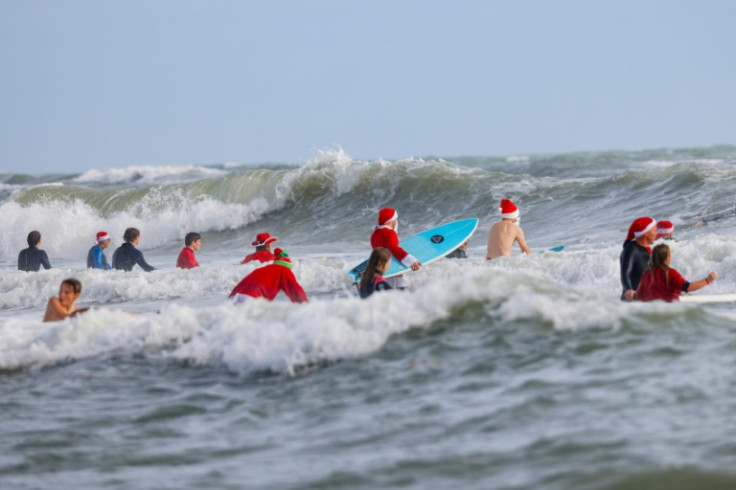
AFP
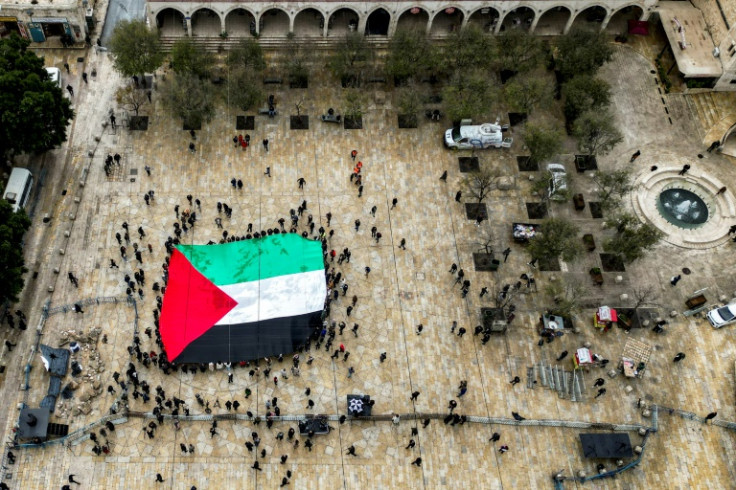
AFP
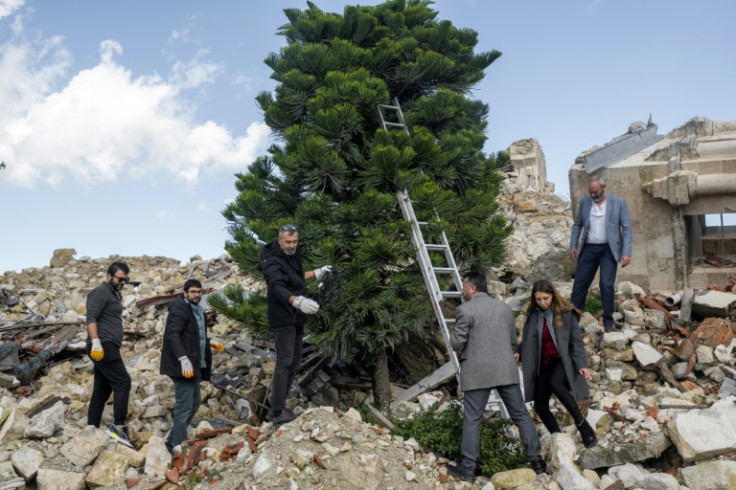
AFP
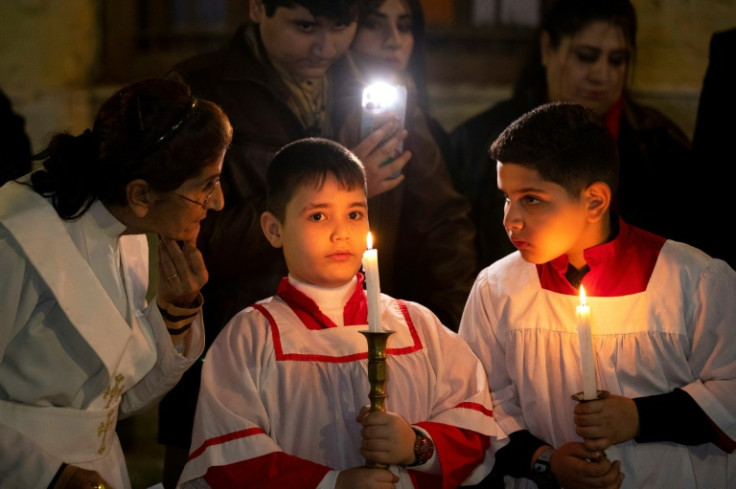
AFP
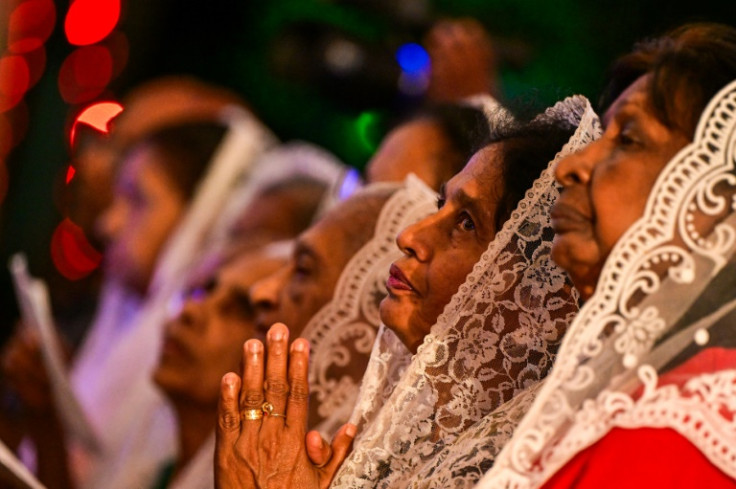
AFP
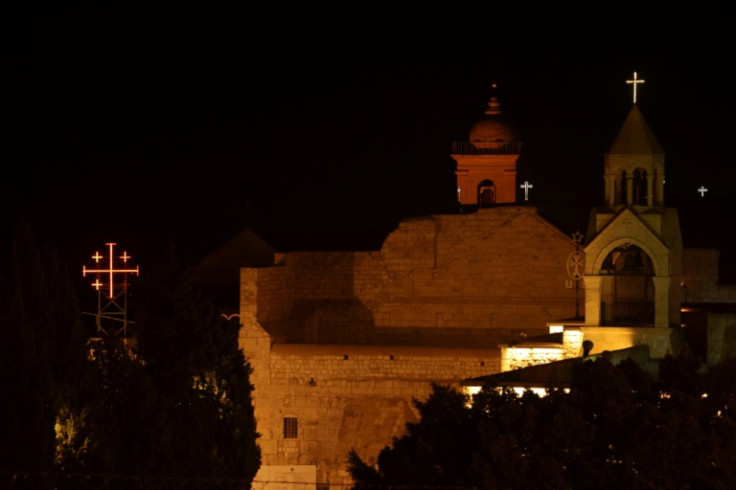
AFP

